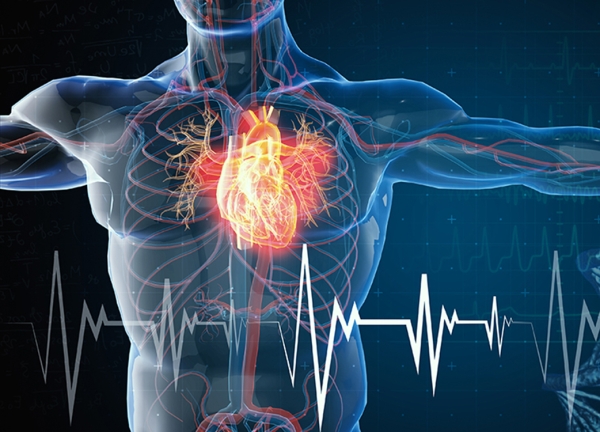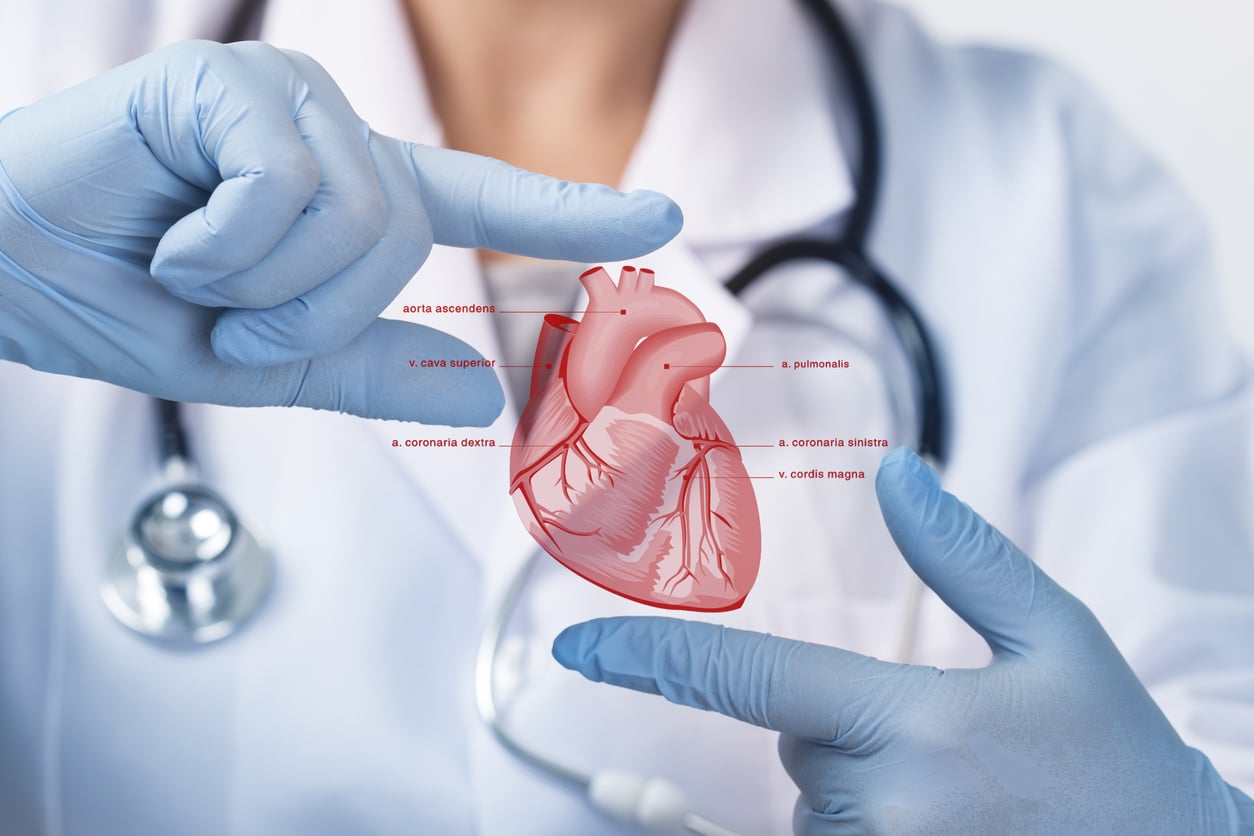Comprehending the Importance of Cardiology in Modern Health Care Services
Cardiology plays a critical duty in contemporary medical care, particularly as heart disease remains to be the leading root cause of mortality worldwide. Breakthroughs in diagnostics and treatment have actually changed client care, enabling earlier interventions and enhanced end results. The shift towards preventative cardiology encourages people to manage their health proactively. As modern technology continues to progress, the integration of cutting-edge remedies might better redefine cardiology's influence on public health, motivating a more detailed exam of emerging trends and their ramifications.
The Frequency of Heart Disease and Its Effect On Public Health And Wellness
Heart illness stays the leading cause of fatality worldwide, its impact prolongs far beyond individual clients to affect public health and wellness systems and economies. The high prevalence of cardiovascular disease places a substantial strain on healthcare sources, demanding enhanced funding for rehabilitation, treatment, and avoidance programs. Public health and wellness campaigns must attend to risk aspects such as weight problems, smoking, and inactive lifestyles, which contribute considerably to the climbing incidence of heart conditions.Moreover, the financial concern connected with cardiovascular disease is immense, encompassing not only straight clinical costs yet likewise indirect expenditures connected to shed productivity and premature mortality. Areas face obstacles in handling these prices, frequently bring about disparities in medical care accessibility and end results. As the populace ages and lifestyle-related dangers remain to rise, the necessity for reliable cardiology interventions becomes vital. Subsequently, resolving heart problem is not only an issue of individual health and wellness yet also a crucial public health top priority.
Advances in Cardiac Diagnostics and Imaging Techniques
Recent advancements in heart diagnostics and imaging strategies have actually transformed the field of cardiology, boosting the capability to keep an eye on and discover heart problem. Techniques such as heart MRI, CT angiography, and echocardiography have actually ended up being progressively sophisticated, giving comprehensive photos of cardiac structures and features. These modalities permit the early recognition of problems like coronary artery illness, cardiac arrest, and valvular disorders.Moreover, innovations in non-invasive diagnostics, such as wearable technology and remote tracking gadgets, have equipped patients and healthcare suppliers. These devices facilitate real-time tracking of heart rhythms and various other vital indications, causing timely treatments. Additionally, man-made knowledge is being incorporated into imaging evaluation, boosting precision and effectiveness in diagnosis.
Innovations in Treatment Choices for Heart Issues
Recent developments in cardiology have actually led to substantial innovations in therapy alternatives for heart problems. These consist of advanced medical strategies that improve procedural end results and arising medications that supply brand-new opportunities for therapy. As the area evolves, these innovations play an essential duty in boosting person treatment and end results.
Advanced Surgical Techniques
Technologies in medical strategies have changed the landscape of cardiology, supplying brand-new hope for patients with heart disease. Minimally invasive procedures, such as catheter-based interventions, have actually greatly decreased recovery times and healthcare facility remains. Methods like robotic-assisted surgical treatment improve precision, enabling doctors to browse complex anatomical frameworks with higher accuracy. In addition, advancements in imaging modern technology assist in real-time visualization throughout treatments, improving results. Transcatheter aortic shutoff replacement (TAVR) exemplifies an advancement in treating aortic stenosis, making it possible for shutoff replacement without open-heart surgery. Additionally, hybrid approaches that incorporate surgical and catheter-based methods offer tailored services for numerous cardiac issues. These innovative medical methods not just enhance client safety and security yet additionally expand treatment alternatives, underscoring the vital duty of technology in modern cardiology techniques.
Emerging Treatments and medicines
As the landscape of cardiology continues to progress, emerging treatments and medications play a crucial role in enhancing treatment options for heart conditions. Technologies such as unique anticoagulants and progressed lipid-lowering agents have changed the management of cardio illness, considerably decreasing patient morbidity and death. Furthermore, the advancement of genetics therapies and regenerative medicine offers encouraging methods for treating conditions formerly deemed incurable. Scientific tests are continuously disclosing the efficacy of these treatments, pushing the borders of typical therapies. In addition, the integration of electronic wellness technologies facilitates customized medication, permitting customized therapy strategies based on genetic and lifestyle elements. Collectively, these innovations emphasize the dynamic nature of cardiology, enhancing client end results and redefining criteria of care in modern health care.
The Role of Preventive Cardiology in Person Treatment
Precautionary cardiology plays an important duty in individual treatment by focusing on the identification of threat elements that add to heart problem. With way of life adjustment approaches and very early discovery strategies, medical care suppliers can effectively lower the occurrence of cardiovascular occasions - Dr Garcia. This aggressive strategy not only enhances person end results yet also advertises lasting health and wellness
Threat Variable Recognition
While heart diseases stay a leading source of morbidity and mortality worldwide, effective danger factor recognition functions as a foundation of preventative cardiology. Identifying risk aspects such as hypertension, diabetes mellitus, hyperlipidemia, and household background is crucial for very early treatment. Healthcare specialists use different screening approaches to evaluate these aspects, permitting customized precautionary actions. In addition, comprehending a patient's way of life options, such as smoking and physical inactivity, further educates risk analyses. This thorough evaluation enables clinicians to establish personalized treatment plans focused on mitigating risks. By prioritizing risk variable identification, health care systems can boost individual results and minimize the overall problem of cardio conditions, ultimately adding to enhanced public wellness methods and resource allowance.
Lifestyle Adjustment Approaches
A wide variety of studies highlights the crucial role of lifestyle adjustment methods in lowering cardiovascular illness threat. These methods include dietary changes, raised physical task, cigarette smoking cessation, and weight monitoring. By embracing a heart-healthy diet regimen abundant in fruits, veggies, whole grains, and lean proteins, individuals can reduce cholesterol levels and blood stress. Regular exercise enhances the heart and improves overall cardio wellness. Furthermore, quitting smoking significantly minimizes the risk of cardiovascular disease and improves recovery prices for those with present conditions. Weight management further adds to cardiovascular health and wellness by reducing other threat factors such as diabetic issues and hypertension. Applying these way of life transforms not just advertises private well-being however likewise serves as a cornerstone of preventive cardiology in person care.
Early Discovery Techniques
Lifestyle alterations greatly add to lowering heart disease threats, however they are most reliable when coupled with early discovery methods. Preventative cardiology stresses the relevance of recognizing possible heart problems prior to they rise into serious problems. Techniques such as high blood pressure tracking, cholesterol screening, and advanced imaging technologies like echocardiograms play crucial roles in reviewing cardiovascular wellness. Biomarkers and hereditary testing likewise enhance the accuracy of early detection, enabling customized preventive approaches. Routine heart danger examinations encourage healthcare companies to interfere proactively, possibly avoiding cardiovascular browse around these guys disease and strokes (Cardiology care). By incorporating these very early discovery methods right into routine care, patients can gain from timely way of life interventions and targeted therapies, ultimately boosting outcomes and enhancing lifestyle
Integrating Innovation Into Cardiology Practices
As innovations in modern technology proceed to reshape different fields, the integration of ingenious tools and systems into cardiology practices has come to be crucial for enhancing client care and results. Telemedicine systems allow cardiologists to keep track of people from another location, improving access to care while lowering the burden on healthcare centers. Wearable tools, such as smartwatches, enable continual heart rate surveillance, alerting both medical professionals and individuals to potential concerns in real-time. Furthermore, expert system (AI) is being used to analyze large quantities of cardiac data, aiding in very early medical diagnosis and customized therapy strategies. Advanced imaging techniques, including 3D echocardiography, enhance visualization of heart structures, resulting in much more accurate treatments. Electronic health and wellness documents (EHRs) streamline client information management, making sure that cardiologists have instant accessibility to important data. Together, these technological advancements are changing cardiology, advertising aggressive management and boosted health and wellness end results for clients with cardiovascular conditions.
The Importance of Patient Education and Engagement
Person education and interaction play an essential function in the management of cardiovascular health and wellness. By furnishing patients with understanding about their conditions, therapy choices, and lifestyle adjustments, health care suppliers equip individuals to take an active role in their care. This positive approach can cause boosted adherence to prescribed drugs, dietary modifications, and exercise programs, ultimately reducing the threat of complications.Engagement likewise cultivates a strong patient-provider partnership, urging open communication and trust fund. When clients really feel informed and entailed, they are more probable to voice issues and ask concerns, which can cause far better professional results. In addition, educational resources, such as workshops or digital platforms, can boost understanding and promote self-management techniques. Overall, focusing on individual education and learning and engagement is essential for boosting cardiovascular health, improving lifestyle, and lowering health care costs related to heart diseases.
Future Patterns in Cardiology and Their Prospective Impact

Frequently Asked Inquiries
What Lifestyle Adjustments Can Reduce Cardiovascular Disease Danger?
The present question addresses lifestyle modifications that can considerably minimize cardiovascular disease risk. Cardiology Jupiter. Embracing a balanced diet, participating in normal exercise, keeping a healthy and balanced weight, handling tension, and staying clear of tobacco can significantly boost cardiovascular health and wellness
Just How Can I Recognize Early Indicators of Heart Problems?
Recognizing early indications of heart issues involves monitoring signs such as chest pain, shortness of breath, tiredness, and irregular heart beat. Timely understanding of these indicators can trigger required clinical assessment and intervention for better results.
What Are the Distinctions Between Cardiologists and Cardiac Surgeons?
The differences between cardiologists look at here now and cardiac cosmetic surgeons lie in their duties; cardiologists primarily detect and manage heart conditions via non-invasive techniques, while cardiac cosmetic surgeons execute surgeries to correct architectural heart problems. Each plays a crucial, unique role.

Just how Often Should I Get My Heart Health And Wellness Checked?
The frequency of heart checkup varies based upon individual danger aspects. Typically, grownups ought to go through examinations each to 2 years, while those with existing conditions may call for even more frequent assessments as advised by medical care experts.
What Role Does Genetics Play in Heart Illness Danger?
Genetics considerably influences heart condition risk, with domestic patterns indicating acquired conditions. Certain genes can incline individuals to high blood pressure, cholesterol concerns, and various other cardiovascular problems, highlighting the value of genetic screening in assessing heart health. Heart illness stays the leading reason of fatality around the world, its effect prolongs much past individual patients to impact public wellness systems and economic climates. Public health initiatives have to attend to danger factors such as obesity, cigarette smoking, and less active way of livings, which contribute significantly to the increasing incidence of heart conditions.Moreover, the economic worry linked with heart disease is immense, encompassing not only direct medical expenses however likewise indirect costs associated to shed efficiency and premature mortality. Preventative cardiology plays a crucial function in individual care by focusing on the identification of threat variables that contribute to heart illness. Man-made knowledge (AI) and device discovering are enhancing diagnostics and patient monitoring, allowing very early discovery of heart illness. The differences in between cardiologists and cardiac cosmetic surgeons lie in their duties; cardiologists mostly handle and identify heart conditions via non-invasive approaches, while cardiac specialists perform medical procedures to correct structural heart issues.